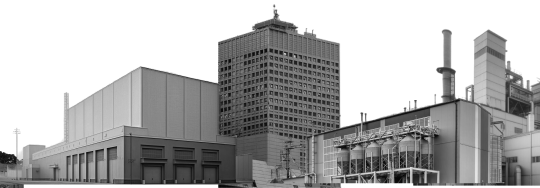Have diesel generators up to 800 kW in Delhi-NCR? Then you must read the CAQM’s latest directions.
As of 9 February 2023, the Supreme Court-appointed CAQM (Commission for Air Quality Management) has issued directions that any use of DG (diesel generator) sets of up to 800 kW capacity in Delhi-NCR will be permitted only if they transition to the dual fuel system (up to 70% gas and 30% diesel).
This is for the coming summer and the deadline to meet this compliance is 15th May 2023.
The CAQM (referred to as Commission here onwards) directions are important. The body constituted for the management of air quality, is directly answerable to the Supreme Court.
Some industry insiders have concerns about the push to dual fuel systems and worry if these regulations are temporary or if they are here to stay. If you read about the directions issued by the government and courts over the years, you’ll see dual fuel features as a prominent element in India’s strategy to reduce emissions and improve air quality in and around its major cities.
Energeia’s team is closely monitoring this. We understand these compliances and our technology is guided by them. We will provide you with solutions that are safe for the engine, and help you optimise gas savings and your costs. Importantly, our closed-loop technology ensures that emissions from diesel generators reduce across loads.

Understanding air pollution and diesel generators
Dual fuel got its push in 2019 with the launch of the National Clean Air Programme (NCAP). The central government body was tasked to prepare a clean air action plan to reduce particulate matter (PM) concentration. They set a goal of reducing 30% PM concentration in cities covered by the NCAP by 2024. In September 2022, they revised this and set a new target of reducing 40% PM by 2026.
The NCAP study states that diesel generator sets contribute up to 18% to ambient air pollution in non-attainment cities. Problematically, 91% of diesel generator sets have no regulation once they are manufactured. This is despite the fact that the older the diesel generator gets, the more air pollution it is likely to contribute to. This goes up to 11 times the standards set during its manufacture.
The norms in place, issued by state pollution control boards, were only meant for new generators. The NCAP said it was crucial therefore to fix the gap and address emissions from older in-use generators.
The NGT caught on to the NCAP report and asked all state pollution control boards (SPCB) to ensure compliance with air quality norms in their diesel generators. The order reiterated what the NCAP recommended, to retrofit equipment to control emissions, shift to gas-based generators entirely, or retrofit the existing diesel generators for partial gas usage (dual fuel).
Tamil Nadu’s state pollution control board was the first to spring into action, followed by Haryana and Kerala.
The Commission on Diesel Generators
Earlier the Environment Pollution Control Authority (EPCA) was responsible for managing air pollution in Delhi-NCR. In October 2020, the EPCA was disbanded and in its place, the Commission was created by the Supreme Court.
While the EPCA had earlier issued directions that no diesel generator could be used when the graded response action plan (GRAP) was enforced, which is in the winter months, the Commission took over and enhanced the push toward energy transition.
In a slew of directions to Delhi, Rajasthan, Uttar Pradesh, and Haryana in February 2022 the Commission directed the use of diesel generators when GRAP is enforced (winter months), for a period of two hours daily only if they meet two criteria. Firstly, the diesel generators must be converted to the dual fuel mode (up to 70% gas and 30% diesel) and diesel generators with up to 800 kW gross power would have to be equipped with Retrofitted Emission Control devices.
Energeia played a crucial role in helping our clients make this transition in a seamless way. Our team has experience working on a bottom-up approach. As a result, we not only understand what is needed inside these plants/units but are well-versed with the practical issues people face while transitioning to energy efficiency.
We provided end-to-end solutions through our shared savings business model. Read more about this here.
Then again in September 2022, the Commission issued directions for diesel generators above 800 kW for the GRAP period of the winter season. They said the DGs would be allowed to operate if they are converted to the dual mode for two hours a day to deal with exigencies. In areas where the infrastructure and supply to natural gas were not available, the diesel generator will be permitted to run for a maximum of an hour a day.
Now coming to the latest directions, issued on February 9, 2023, the commission has introduced directions for the summer months, going beyond the GRAP/winter season. Now they have directed that any use of diesel generators up to 800 kW power capacity shall be permitted to function in Delhi-NCR only if they convert to a dual fuel system.
As subject matter experts who understand the changing regulations and the practical concerns of the market, we believe we can make this transition for you hassle-free and smooth. Our team of subject matter experts has already done at least 100 dual fuel transitions for diesel generators up to 800 kW.
Reach out to us at riyaz.husain@energeia.in email ID and +91 7837833596 for further information. Or click here to get a quotation.












